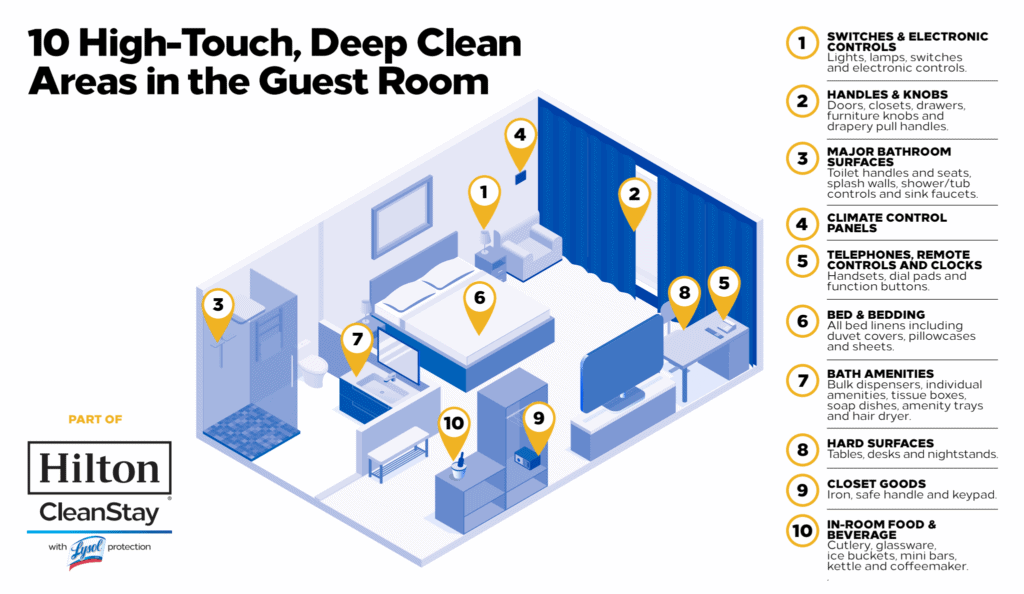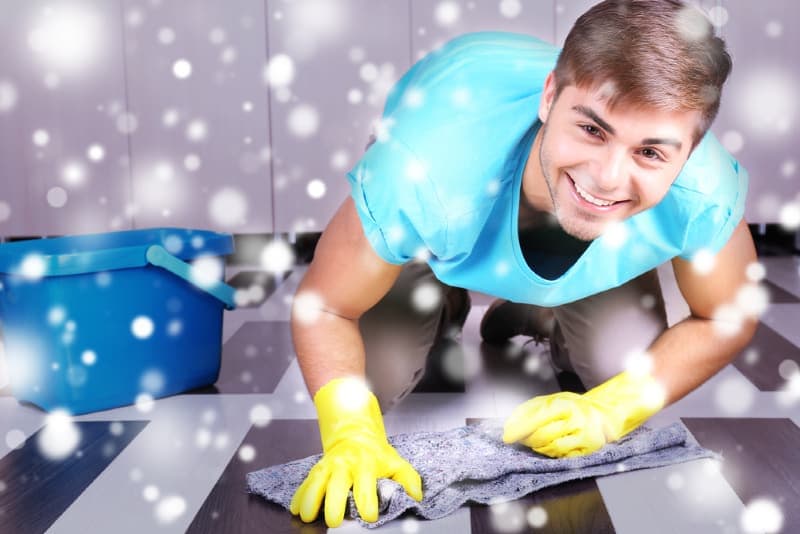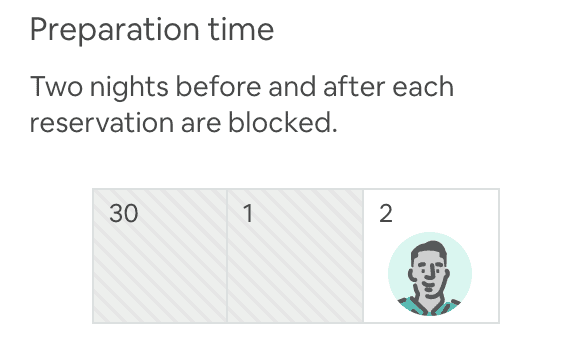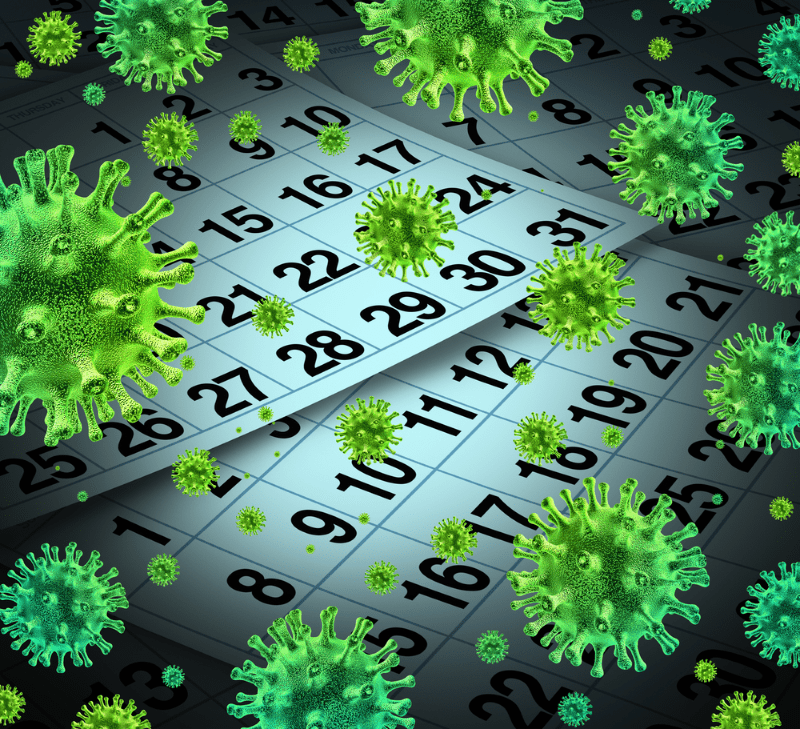(This article is part of our series: Vacation rental safety & is Airbnb safe?)
To get travelers to trust the cleanliness of its listings, Airbnb has announced that it would be rolling out in May two new opt-in options for hosts. On one hand, the “Enhanced Cleaning Initiative” program, a series of cleaning guidelines with a 24-hour buffer between stays. On the other hand, a calendar booking feature called the “Booking Buffer.”
We will summarize for you what this is about, as well as share with you how we think Airbnb will not be able to enforce such cleaning guidelines. Short answer: They will not be able to control it. This difficulty is why the time buffers are crucial here: By creating a time lag of 24 to 72 hours between stays, Airbnb hopes that enough time will have passed so that the virus will not be living on the surface of anything inside of a property.
Airbnb needs to work on cleanliness standards, as travelers may feel safer in hotels than in short-term rentals

For good or bad reasons, in 2020, travelers may feel that a bland hotel room in a boring chain hotel is more attractive than a quirky and super cute apartment hosted by a non-professional host. In COVID-19 times, guests may think hotel chains have cleaning protocols in place that will make them a safer option than short-term rentals.
Companies like Marriott have, for decades, had rigorous ways to train staff and to check whether things had been done as expected. This is probably less true in smaller independent hotels but, here, we are talking about the overall perception of people who will start traveling again once authorities have lifted lockdowns.
Hotel chains understand that the COVID-19 coronavirus crisis has raised awareness about the importance of high-touch surface cleanliness. So, they have contacted health experts of all kinds, created guidelines, and rolled out programs for their staff. New sanitation procedures range from sticker seals on doors to contactless check-in to heavy-duty disinfectant sprayers. Here a few of these programs;
- Accor — New Cleanliness Label with Bureau Veritas
- Hilton — CleanStay with Lysol Protection
- Hyatt — Global Care & Cleanliness Commitment
- Marriott — Global Cleanliness Council
Airbnb’s answer: A cleaning protocol with a 24-hour buffer And Another Feature that creates a 72-hour gap between Stays

Keep in mind that:
- This is not mandatory. Hosts will be asked to opt-in.
- This is supposed to be rolled out in Mid-May 2020
- These are 2 different things: One is a program, the other is a calendar booking feature
1/ Airbnb’s Enhanced Cleaning Initiative (opt-in program)
To summarize it:
– An expert-backed (CDC, Ecolab, former US Surgeon General) cleaning protocol with step-by-step guidelines,
– Guidelines will include a learning and certification program,
– Will include a 24-hour buffer between stays,
– Properties will be labeled and easy for guests to identify.
The host Cleaning Protocol will include specific information on COVID-19 prevention, such as the use of personal protective equipment, like masks and gloves for hosts or their cleaners, as well as disinfectants that are approved by regulatory authorities
The protocol will be available to all hosts and we encourage them to commit and adopt these enhanced cleaning practices.
2/ 72-hour “Booking Buffer” Reservation Preference (also an opt-in)
If hosts are unable to commit to our Cleaning Protocol, they can alternatively opt into a new feature called Booking Buffer, to create a vacancy period between stays
If you are an Airbnb host, you know that Airbnb enables you to set up a standard “preparation time” between stays. Cleaning up a whole vacation rental takes more time than cleaning a hotel bedroom, so some property managers prefer to create a buffer between bookings. The goal is to make sure that changeover time is large enough so that the cleanliness and staging of the property are the best.
We think that Airbnb will expand this Preparation Time feature (which currently goes up to 2 days before and after each reservation) to create its 72-hour Booking Buffer. To give you an idea, this is what the Preparation Feature currently looks like on Airbnb:


Why we think that the real Virus prevention measures are the 24-hour and the 72-hour buffer between reservations

Airbnb’s Enhanced Cleaning Initiative is a program that comes with guidelines, education, and certification. How can Airbnb make sure that cleaners apply these step-by-stey guidelines consistently and systemically at enrolled properties? This consistency issue was also there with Airbnb Plus: Once the inspection has occurred, what guarantees do guests thave that the standards are enforced?
So, we think that the 24-hour booking buffer, included with the Enhanced Cleaning Initiative, is what will be giving some control to Airbnb over virus spreading. The thinking may be that, if hosts perform at least part of the guidelines, 24 hours will be enough to lower the risk.
This could explain the existence of the 72-hour booking buffer: If hosts are not ready to commit to following the cleaning protocol of the demanding Enhanced Cleaning Initiative, then letting 3 days (72 hours) pass should be enough to lower the virus-spreading risk.
Why 72 hours? We found this research piece by the New England Journal of Medicine called “Aerosol and Surface Stability of SARS-CoV-2 as Compared with SARS-CoV-1“. It shows that coronavirus COVID-19 is detectable for up to 3 hours in aerosols, up to 4 hours on copper, up to 24 hours on cardboard, and up to two to three days (72 hours) on plastic and stainless steel.
Conclusion: Time is a great teacher, but unfortunately it kills all its pupils.
We will have more details in May when Airbnb rolls out its Enhanced Cleaning Initiative and its Booking Buffer.
Will guests feel safer if they find an Airbnb listing with en “Enhanced Cleaning” label? Will hosts enrolled in this opt-in program follow the step-by-step guidelines consistently and systematically? Will Airbnb rely on guests to report any laps, for instance, that the wrong disinfectants have been used? Will Airbnb rely on a new cleanliness review score?






